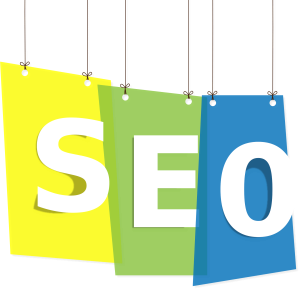What Is Search Engine Optimization(SEO)
What Is Search Engine Optimization (SEO)?
In today’s digital world, visibility is everything. Whether you’re a small business owner, a content creator, or a multinational brand, being found online by your target audience is crucial. But with billions of websites out there, how do you make sure people find your website? The answer lies in Search Engine Optimization, commonly known as SEO.
In this blog, we’ll dive deep into what SEO is, why it matters, how it works, and answer the all-important question: What is SEO in Digital Marketing?
Understanding the Basics: What Is SEO?
Search Engine Optimization (SEO) is the practice of optimizing a website to rank higher on search engine results pages (SERPs), such as Google, Bing, or Yahoo. The higher your site ranks, the more visible it becomes to people searching for relevant information, products, or services.
In simple terms, SEO is all about improving your website so that it appears at the top when someone types in a search query related to your business.
Before we go further, let’s first understand what is SEO in Digital Marketing and why it plays such a vital role in the online world.
What is SEO in Digital Marketing?
What is SEO in Digital Marketing? It’s one of the most powerful and cost-effective ways to attract organic (unpaid) traffic to a website. In the realm of digital marketing, SEO is considered a long-term strategy that helps businesses gain visibility, build trust with users, and increase conversions without relying entirely on paid advertising.
Unlike PPC (Pay-Per-Click) ads, where you pay for every click, SEO focuses on earning traffic by creating valuable content, optimizing web pages, and building site authority. It’s a key component of any digital marketing strategy and is used in combination with social media, content marketing, email marketing, and paid advertising.
Why Is SEO Important?
Now that we understand what is SEO in Digital Marketing, let’s look at why it’s essential:
Increased Visibility: The majority of online experiences start with a search engine. SEO helps ensure your content appears when users search for topics relevant to your niche.
Cost-Effective Traffic: SEO brings in consistent, targeted traffic without ongoing ad spend.
Builds Trust and Credibility: Users trust Google, and ranking high implies authority and relevance.
Improves User Experience: Good SEO practices, like fast loading speeds and mobile optimization, enhance overall user satisfaction.
Better ROI: When done correctly, SEO delivers one of the highest returns on investment among all digital marketing tactics.
Still wondering what is SEO in Digital Marketing and whether it’s worth your time? The results speak for themselves—higher traffic, more leads, and sustainable growth.
Key Components of SEO
To fully understand what is SEO in Digital Marketing, you need to break it down into its major components:
1. On-Page SEO
This refers to all the optimization you do on your website, including:
Keyword research and placement
Meta tags (title, description)
Headings (H1, H2, H3…)
Internal linking
Optimized images
Quality content
2. Off-Page SEO
This involves activities that happen outside your website but impact your rankings, such as:
Backlink building
Social media signals
Guest posting
Influencer outreach
3. Technical SEO
This ensures that your website meets the technical requirements of search engines, including:
Fast page speed
Mobile-friendliness
Secure connection (HTTPS)
XML sitemaps
Structured data (schema markup)
All of these elements work together to tell search engines what your content is about and why it’s relevant to users’ queries.
How Search Engines Work
To better grasp what is SEO in Digital Marketing, it’s important to know how search engines operate. Here’s a simplified explanation:
Crawling: Search engines use bots (or spiders) to discover and scan web pages.
Indexing: The discovered pages are stored in the search engine’s database.
Ranking: When a user types in a query, the search engine delivers results ranked by relevance, authority, and user-friendliness.
SEO helps your site perform better in all three stages—ensuring it gets crawled, indexed, and ranked appropriately.
Types of SEO
Another essential aspect of understanding what is SEO in Digital Marketing is recognizing the different types of SEO:
White Hat SEO: Ethical optimization strategies that comply with search engine guidelines.
Black Hat SEO: Risky techniques that aim to trick search engines (e.g., keyword stuffing, cloaking). These can lead to penalties.
Local SEO: Optimizing your business for location-specific searches. This is critical for local businesses wanting to appear in “near me” results.
E-commerce SEO: Optimizing product pages, descriptions, and categories for online stores.
Common SEO Tools
If you’re serious about mastering what is SEO in Digital Marketing, you’ll want to use tools that simplify and enhance your SEO efforts:
Google Search Console – Monitors your site’s presence in Google results.

Google Analytics – Tracks user behavior and traffic sources.
SEMrush / Ahrefs / Moz – Comprehensive SEO toolkits.
Yoast SEO (for WordPress) – Helps optimize on-page SEO easily.
These tools help you understand how well your SEO is working and where improvements are needed.
Career Opportunities in SEO
With more businesses going online, SEO professionals are in high demand. If you’re considering a career in digital marketing, understanding what is SEO in Digital Marketing is a great starting point.
Popular job roles include:
SEO Executive / Analyst
SEO Manager
Content Strategist
Digital Marketing Specialist
Link Building Expert
Whether you’re a student, freelancer, or business owner, learning SEO can open up numerous career and growth opportunities.
Final Thoughts
So, what is SEO in Digital Marketing? It’s the art and science of increasing a website’s visibility in search engine results, driving organic traffic, and improving online presence. It involves technical setup, content creation, link building, and constant optimization.
In the digital age, having a beautifully designed website isn’t enough. If no one can find it, it serves little purpose. That’s where SEO steps in—helping your audience discover your content, products, or services at the exact moment they need them.
If you’re building a business, launching a blog, or pursuing a career in marketing, understanding what is SEO in Digital Marketing is no longer optional—it’s essential. For more information, contact Harshit Consulting.




